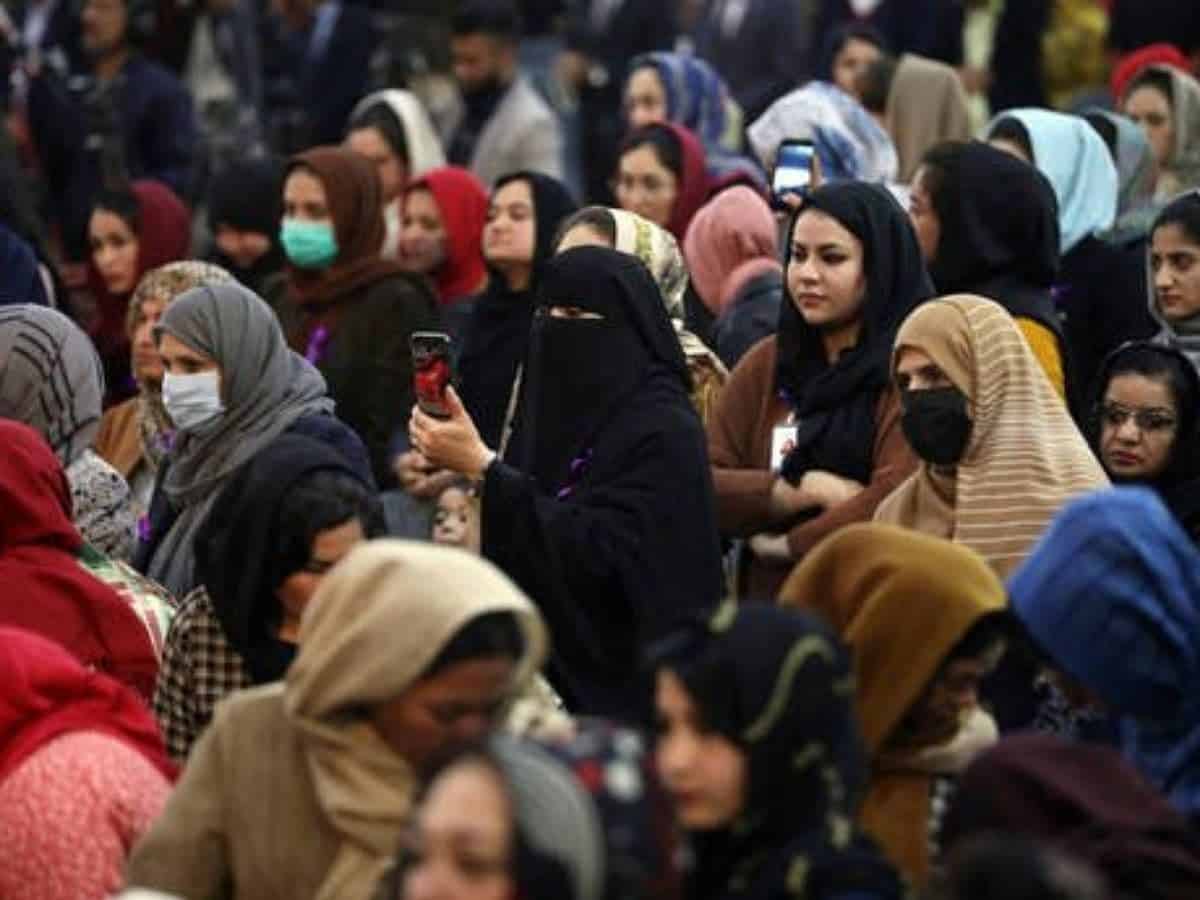As the Taliban gained the control of Afghanistan on August 15, women fear that their worst nightmares might come true.
Afghan women worry that the gains made by them in the country in the field of education and rights during the past two decades might fade away.
History of Taliban in Afghanistan
The Taliban took control of Afghanistan in 1996, imposing harsh conditions and rules after their strict interpretation of Islamic law.
Under their rule, women had to cover themselves and leave the house only in the company of a male family member. The Taliban also prevented girls from going to school, and women from working outside the home. They were also prevented from voting.
Women were severely punished for not obeying these rules, including beatings and killing if they were guilty of adultery. Afghanistan has the highest maternal mortality rate in the world.
Past 20 years
With the fall of the Taliban regime in 2001, the situation for women and girls improved dramatically, although these gains were partial and fragile.
Women now hold positions as ambassadors, ministers, governors, police and security forces. In 2003, the new government ratified the convention on the elimination of all forms of discrimination against Women, which required states to incorporate gender equality into their domestic laws.
The 2004 Afghan constitution states that “Afghan citizens, both men and women, are equal in rights and duties before the law.” Meanwhile, a 2009 law was passed to protect women from forced marriage and violence.
With the country’s transition from virtually no girls in schools to tens of thousands at university, progress has been slow and precarious. UNICEF reports that 3.7 million Afghan children are out of school, 60 per cent of whom are girls.
Return of ‘dark days’
There is an atmosphere of chaos in Afghanistan right now. Thousands of people gathered at the airport. All countries are working on a war footing to evacuate their citizens living in Afghanistan. India has also started trying to evacuate its people.
Two weeks before the full withdrawal of US troops after a two-decade-long war, the Taliban took control of the whole of Afghanistan. The Taliban government will be formed in Afghanistan in a day or two.
Soon after the Taliban takeover the Kabul, President Ashraf Ghani along with national security adviser Hamdullah Muhib left the country to avoid bloodshed and fled to Tajikistan.
The UN refugee agency says nearly 250,000 Afghans have fled their homes since the end of May amid fears the Taliban may re-impose their hard-line and harsh interpretation of Islam, all but the erosion of women’s rights. 80 per cent of the displaced are women and children.
Afghan women and girls are most afraid of Taliban occupation because as soon as the Taliban captured some cities, they first kidnapped the women there and forced them to marry Taliban fighters, according to the media reports.
So the people of Afghanistan want to take their daughters to a safe place. Every girl in Afghanistan is in awe at this time and is pleading for help and is asking the whole world why all the powerful countries are not coming forward to help the people of Afghanistan.
The Taliban said they were no longer opposed to women attending school but had not developed a clear policy on women’s rights.
What will happen next in Afghanistan?
The Taliban say they want to form an “inclusive, Islamic government” with other factions. They are negotiating with senior politicians, including leaders in the former government.
They have promised to enforce Islamic law, but say they will provide a safe environment for the return of normal life after decades of war.
But many Afghans distrust the Taliban and fear that their rule will be violent and oppressive. One sign that worries people is that they want to rename the country to the Islamic Emirate Afghanistan, which is what they called last time when they ruled.

